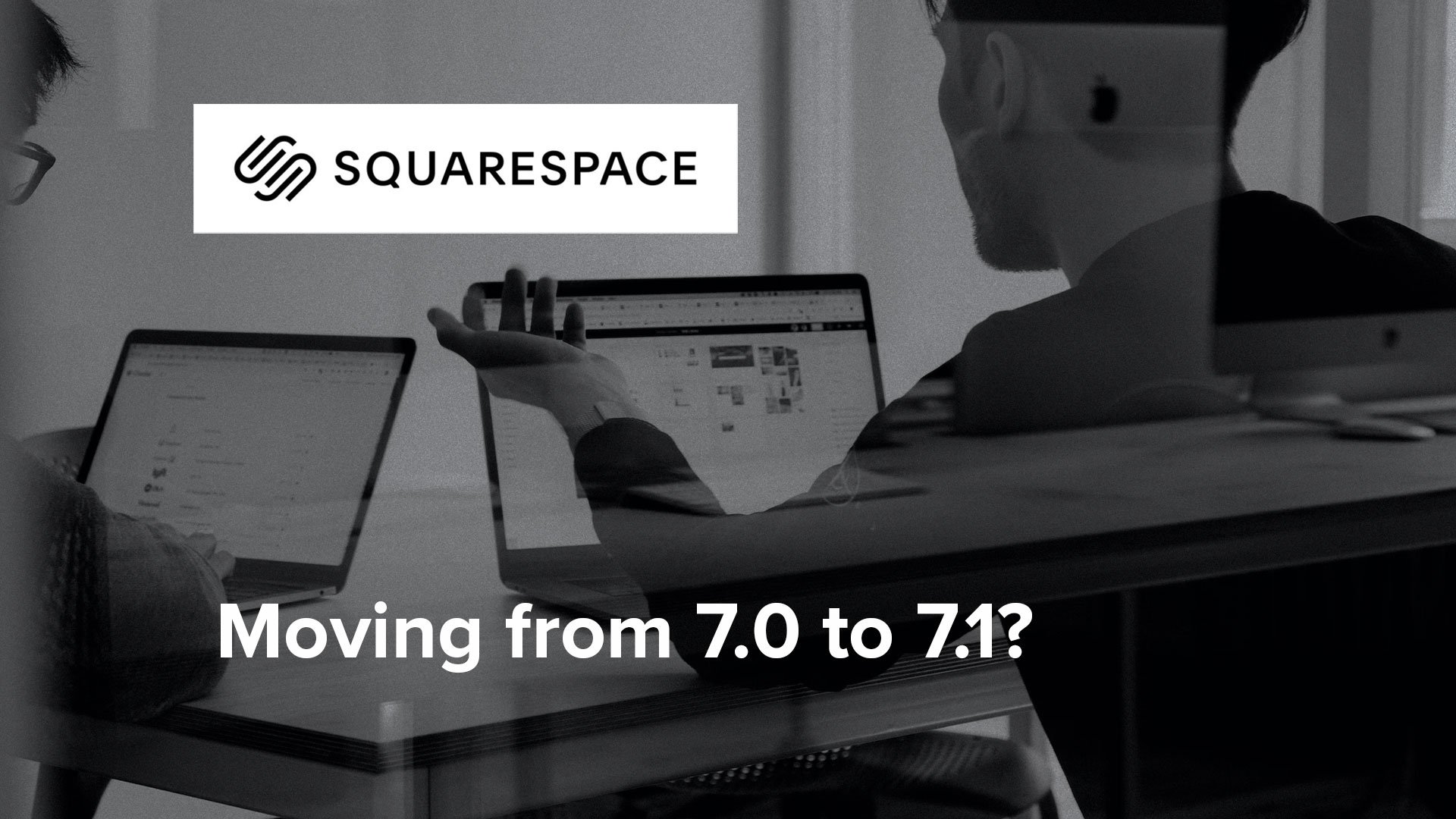Squarespace vs. Shopify – Choosing the right website builder for your business
When it comes to building your website, two popular platforms stand out: Squarespace and Shopify.
In today's fast-paced digital world, having a strong online presence is not just a luxury but a necessity for businesses of all sizes. Both of these website builders offer robust tools to create and manage your online store or business website. However, the choice between them depends on various factors.
In this article, we'll provide an in-depth comparison of Squarespace and Shopify, exploring their pros and cons, suitability for different types of businesses, feature comparisons, and pricing models.
Squarespace: Pros & Cons
Squarespace Pros:
Stunning Templates: Squarespace is renowned for its stunning and professionally designed templates. Whether you're selling products or promoting services, Squarespace provides an array of visually appealing templates that can make your website look top-notch without requiring advanced design skills.
Ease of Use: Squarespace's user-friendly interface is a significant advantage. It's an excellent choice for beginners who want to get their site up and running quickly without a steep learning curve. The platform's intuitive drag-and-drop editor simplifies the website-building process.
All-in-One Solution: Squarespace offers an all-in-one solution, including hosting, domain registration, and a variety of built-in features such as blogging, e-commerce, and analytics. This simplifies the process of setting up and maintaining your website, as you don't need to deal with multiple third-party services.
Mobile Responsiveness: In today's mobile-first world, having a website that looks great on all devices is crucial. Squarespace templates are mobile-responsive by default, ensuring that your website maintains its visual appeal on smartphones and tablets.
Blogging Capabilities: Squarespace excels in the blogging department, making it a solid choice for businesses that prioritize content marketing. It offers robust blogging features, including scheduling, tagging, and commenting capabilities.
Squarespace cons:
Limited E-commerce Features: While Squarespace offers e-commerce capabilities, it may not be as feature-rich as Shopify, particularly for businesses with complex online stores. Advanced e-commerce functionalities such as in-depth inventory management and multichannel selling may be lacking.
Less Customization: Although Squarespace's templates are visually stunning, they can be somewhat limiting when it comes to extensive customisation. Advanced users who require highly tailored websites might find the platform's customization options somewhat restrictive.
Who Should Choose Squarespace?
Squarespace is an excellent choice for small to medium-sized businesses, freelancers, artists, photographers, and bloggers who want a visually appealing, user-friendly website without the need for extensive e-commerce functionality. It's particularly well-suited for businesses that want to focus on presenting their content beautifully.
Read more about our Squarespace web design service and pricing packages here.
Shopify: Pros & Cons
Shopify pros:
Powerful E-commerce: Shopify is a powerhouse when it comes to e-commerce. It offers robust features for inventory management, payment processing, order tracking, and product variations. This makes it ideal for businesses with complex online stores or those planning to scale their e-commerce operations.
App Store: One of Shopify's standout features is its extensive app store, which allows you to add extra functionality to your website with ease. Whether you need advanced marketing tools, enhanced analytics, or specific integrations, you're likely to find a suitable app in Shopify's ecosystem.
Customisation: Shopify provides greater flexibility in terms of customisation. You can either use its user-friendly drag-and-drop editor or delve into the code and hire developers to create a highly tailored website. This flexibility makes it suitable for businesses with unique design or functionality requirements.
Scalability: Shopify can grow with your business. It's suitable for small startups and can handle the demands of large enterprises. As your business expands, you can easily upgrade your plan to access more advanced features.
SEO Capabilities: Shopify offers strong SEO tools to help you optimise your website and content for search engines. This is crucial for businesses aiming to rank higher on search engine results pages (SERPs) and increase their online visibility.
Shopify cons:
Learning Curve: Shopify can be more challenging to learn for beginners, especially those new to e-commerce. The extensive features and options may initially overwhelm users. However, Shopify offers resources like tutorials and customer support to assist with the learning process.
Additional Costs: While Shopify's base pricing is reasonable, it's important to note that costs can add up quickly with app subscriptions and transaction fees, especially for smaller businesses. It's essential to budget for these additional expenses when considering Shopify.
Who should choose Shopify?
Shopify is an ideal choice for businesses of all sizes that prioritize e-commerce. This includes online retailers, drop-shippers, and entrepreneurs looking for a platform that can scale with their growing needs. It's particularly suited for businesses that require advanced e-commerce features and are willing to invest in a more extensive and customisable platform.
Read more about our Shopify web design service and pricing packages here.
Feature Comparison: Squarespace vs. Shopify
Design: Squarespace is known for its visually appealing templates, whereas Shopify focuses on e-commerce functionality. If aesthetics are your top priority, Squarespace might be the better choice.
All-in-One vs. Customisation: Squarespace offers an all-in-one solution, while Shopify provides greater customisation options through its app store and coding capabilities. Consider whether you prefer a more integrated platform or the flexibility to build a highly tailored website.
Mobile Responsiveness: Both Squarespace and Shopify ensure mobile responsiveness, so your website looks great on all devices.
SEO: Shopify's SEO tools are robust and extensive, making it a good choice for businesses aiming to improve their search engine rankings.
Blogging: If blogging is a central component of your online strategy, Squarespace's blogging capabilities may be more suitable for your needs.
Pricing: Squarespace vs. Shopify
When it comes to pricing, both Squarespace and Shopify offer a range of plans to accommodate different budgets and business sizes.
Squarespace: Plans start at $12 per month for personal websites, $18 per month for business websites, and $26 per month for basic e-commerce. Advanced e-commerce plans range from $40 to $46 per month. Squarespace also provides annual billing options.
Shopify: Shopify's pricing begins at $29 per month for the basic plan, which is ideal for small businesses. Advanced e-commerce plans range from $79 to $299 per month, depending on your business needs. Shopify also offers a 14-day free trial for you to test the platform before committing to a plan.
Conclusion:
In the Squarespace vs. Shopify comparison, the best choice ultimately hinges on your business's unique requirements and goals. Squarespace is an excellent fit for those who prioritise aesthetics, user-friendliness, and simplicity, making it a strong choice for small to medium-sized businesses, creatives, and bloggers. On the other hand, Shopify shines in the e-commerce arena, offering a powerful platform for businesses with complex online stores or ambitious growth plans. When making your decision, consider factors such as your budget, technical expertise, long-term objectives, and the specific needs of your business. Both platforms have their strengths, and with the right choice, you can create a successful online presence for your business.
If you're still unsure which platform suits your needs best or need assistance in choosing and building your website, don't hesitate to reach out to our expert team.
We're here to help you make an informed decision and create a website that perfectly aligns with your business goals. Feel free to contact us for more information on how we can guide you through the process. Your online success is our priority, and we're eager to assist you on your journey to a remarkable website.


















Squarespace is easy to use but there are still many benefits to hiring a professional web designer to build your website.